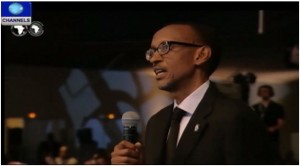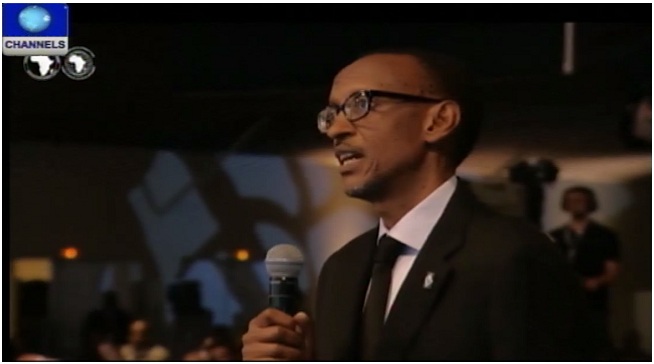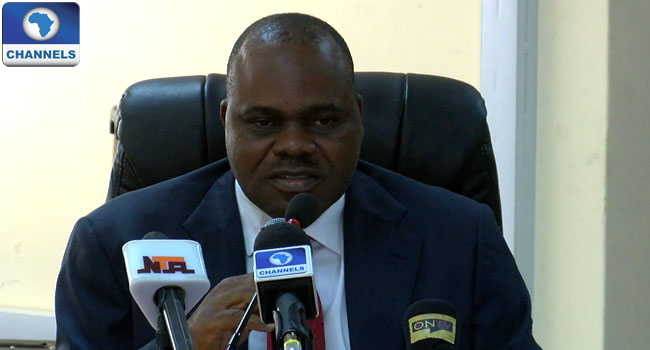
The escalating situation resulted in a meeting of West African leaders in France to seek ways of ending the increasing insurgency in in the region.
The meeting was organised by President Francois Hollande of France.
But the Rwandan President, Paul Kagame, is against such strategy in handling the issues in African continent, stressed the need for African leaders to tackle Africa’s challenges and stop seeking solutions from the western world.
“For so long we have discussed conflicts and we have analysed them having a good idea of the causes and what it constitutes. The leader should be there to resolve the conflict through the management of all the process and what has been identified as the root causes.
“We must take responsibility and accept our failures in dealing with the matters,” President Kagame said.
He questioned why African leaders should wait until they are called to hold a meeting in Europe to address the issues of Africa.
“Why should anybody wait for that. What image does it give to Africa? It does not make sense that our leaders cannot get themselves together to address the problem affecting our people, It is the responsibilities of leaders to resolve their problems but if they cannot resolve it they can call on their neighbours to assist in resolving the issue. We do not need to be invited anywhere to go and address our problems,” he said.
President Kagame said that seeking solutions from countries outside the continent was tantamount to tarnishing the continents image.
In recent years, foreign intervention into Africa’s crisis has always been a last resort.
Western countries, afraid of a looming humanitarian crisis, try to prevent greater problems for themselves, by keeping the peace in Africa as much as possible.
Of course, a worsening humanitarian crisis may not be the only reason foreign countries intervene in Africa’s problems. The major fear is the amount of migrations that will occur from such crisis.
What is happening in Libya is a clear example. Since the toppling of Muammar Gaddafi, on October 20, 2011, Libya has had no real government. While the international community supported what was regarded as a transitional government, the rebel forces in the country have taken over much of the country’s towns and cities and now are a threat to the formation of any credible government.
Though there are no plans to deploy troops there, support is coming via release of funds, stashed away by the former dictator even though it is clear no credible government exists.
Somalia is another example of where foreign intervention has struggled to maintain peace.
Twice, the United Nations has tried to quell rebellion, and establish a government.
Al-Qaeda affiliated Al-Shabab has taken control of much of the country, leaving only a small part of the capital, Mogadishu for the government to rule. That’s because the current President, Hassan Sheikh Mohamoud, enjoys the protection of UN forces in the country.
Over in Sudan, ethnic fighting has displaced thousands, and killed hundreds, created large refugee camps, unable to meet the needs of the growing number.
The fighting has been over who controls the oil towns of Bentiu and the upper Nile state.
The crisis gave birth to the world’s newest country in July 2011. The south complained that much of the oil money was used to develop north of Sudan, while the south, where much of the oil comes from, has been ignored of development.
Much of Sudan’s new generation was born into refugee families.
There have been times that international intervention came at the nick of time.
Many African militaries are made up of former rebels, who decided to join the government. However, the real rebels, who refused to defect, tend to be more equipped than the national army. Access to an illegal weapons’ market, blood money, and illegal deals are seen to be responsible for this.
Therefore, dealing with insurgency has been made successful by advanced and equipped military from outside, the United Nations, or African Union forces, backed by the United Nations.
Sometimes, help has come from individual members of the international community, like in the case of the Central African Republic, and in Mali.
As at December last year, 1000 extra French soldiers were headed to the country, to supplement the 400 already on the ground, and an under-powered regional intervention force, led by the African Union.
French troops have also been in the D. R. Congo, in Chad, in Rwanda, in Cote D’Ivoire, Libya and in Mali.
Analysts believe only Africans understand the root cause of their problems, and therefore hold the solutions, but the inability of the continent to organise an army, ready to respond to crisis situations, means a continuous dependence on the west for such interventions.
As at January, the African Union, at its bi-annual summit, was yet to decide on modalities on forming an African Standby Force to better respond to conflicts across the continent.
The African standby force was supposed to be launched in 2010, with contingents based across Africa, but the date has been postponed repeatedly. The AU now wants the force to be operational by next year.
In the meantime, inspired by the crisis in Mali in 2012, some African nations, have called for a temporary rapid intervention force that would respond to conflicts until the standby force is ready.
To the security situation in Nigeria, the difficulty has been in getting neighbouring African countries to partner to deal with insurgency and terrorism. Nigeria is surrounded by francophone countries, who pay much allegiance to France. Naturally, they are skeptical of their Anglophone neighbors.
But it is clear, that it is time to put all of the distrust aside, and work for the greater good. For no matter how much international intervention Africa receives, insurgency on the continent will always be our problem, until we face it.



